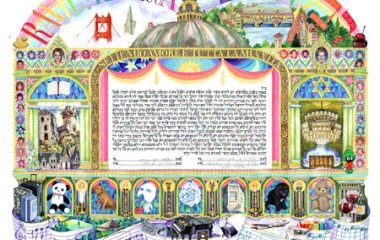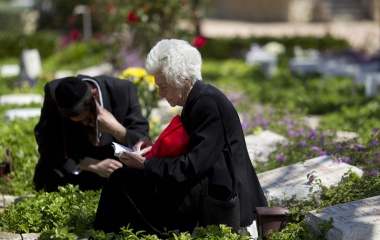
Malcolm Gladwell, in his bestselling book Outliers, demonstrates how so much of our success is a result of factors beyond our control. While in many areas—place of birth, our genetic makeup—this is obvious, he demonstrates the truth of such even in areas where we may not expect such. Factors such as our year of birth or even our birthday can have huge impact on our success.
What in the secular world is called luck is, in our religious worldview, called Divine Providence. "All is in the hands of heaven save for fear of heaven" (Brachot 33b). So much of what happens to us is a result of the actions of others that there is little we can do to control it. One need go no further than watching a superstar toil for a terrible team to see the limits of one's own excellence. We can control our moral behaviour, and little else. We can ensure we work hard so that we can make the best decision possible in any given situation. More often than not, however, we have little or even no control over outcomes. It is for this reason that Judaism, unlike the business world, focuses more on effort than results.
This does not mean that we are helpless in the face of fate, that there is little we can do given the Divine running of the world. Nothing could be further from the truth. (Almost) everything may be in the hands of heaven, but our moral choices may have a great impact on how heaven acts. We may not be able to control the outcome, but we can have a great say in the matter. So far-reaching may "fear of heaven" be that Ralbag (Gersonides) argued that G-d's knowledge does not extend to how man will act when faced with a moral dilemma. As our moral choices are outside "G-d's control", by definition He cannot know how we will choose to exercise our free will[1]. Furthermore, there is much even beyond pure moral choice that is in the hands of man.
And this brings us to masechet Ketubot (just in case you were wondering). Generally, in Jewish law, one receives only one punishment for an act of wrongdoing. Thus, if one commits a capital offense while at the same time causing monetary damage, one would be liable for the death penalty, but exempt from monetary payment. This is known as k’im lei b'derabba minei—we give him only the greater punishment.
The third perek of Ketubot discusses the laws of rape and seduction. In addition to payment for embarrassment, "damages" and, in the case of rape, pain, both a rapist and a seducer must pay a fixed fine. However, this fine is waived when one rapes someone with whom having sexual relations makes one liable for the death penalty, such as one's daughter or even one's step-daughter. However, if one had relations with one for which the penalty is "only" karet, excision, such as with one's aunt or sister-in-law, one would have to pay only the standard fine[2]. With karet being a punishment given at the hands of heaven, the court, in imposing a monetary penalty, is only giving one punishment.
The Gemara quotes the dissenting view of Rav Nechunia ben Hakaneh that even in cases of karet, one would be exempt from monetary payment. Abaye (living 250 years later) explains that this is derived from use of the word ason, harm, both by the death penalty meted out by a court of law and a penalty meted out by heaven.
This heavenly ason is a reference to Yaakov's fear of sending Binyamin to Egypt, "lest an ason happen to him" (Breisheet 42:38) on the way to Egypt by decree of heaven. The Gemara suggests that this heavenly decree is referring to exposure to heat and cold. Such exposure to the elements was impossible to avoid (especially in the days before central heating and air-conditioning), but the effect of such exposure on our health is in the hands of heaven. It is this assumption the Gemara challenges with the teaching, "All is in the hands of heaven save for cold and heat" (Ketubot 30a). Exposing ourselves to the elements without taking proper precautions is just foolhardy, and the consequences are man's, and man's only. G-d may guard the simple, but it is man who must bear full responsibility for negligence.
How beautifully Talmudic that a discussion about the penalties given to a rapist merges with some of the deepest philosophical questions and the proper relationship between human action and Divine Providence!
The Tosafists (s.v. Hakol bide) note that these two teachings complement one another. "All is in the hands of heaven save for fear of heaven" refers to "what is decreed concerning the fetus in utero, whether one will be poor or wealthy[3], strong or weak, foolish or wise; but righteous or wicked, no. "All is in the hands of heaven save for cold and heat" refers to "events that occur to man" as we go through life.
Much may be determined in heaven, but even more is determined here on earth. It is here where we determine what we will make of our G-d-given talents.
__________________________________________________________
[1] For those to whom this sounds heretical, one need look no further than the Rambam, who took as the fundamental truths of Judaism both that G-d has foreknowledge of both all that will happen and that we will do, and yet man has complete freedom to choose right or wrong (see Hilchot Teshuva, chapter 5).
[2] This fine, kenas, is a fixed amount of 50 shekalim of silver for all. The amount of pain and suffering is determined on a case-by-case basis.
[3] The Tosafists were well aware that so much of our economic fortunes are determined by events and people beyond our control.



